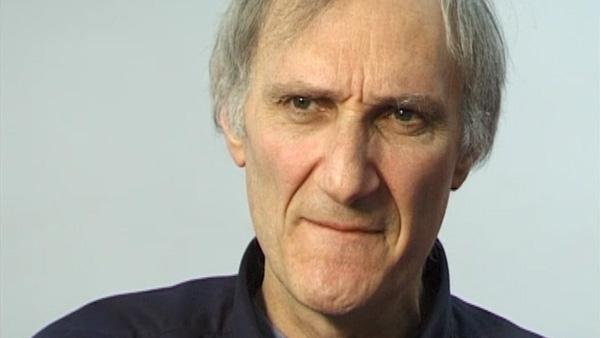NEXT STORY

Doing experiments inspires me
RELATED STORIES

NEXT STORY

Doing experiments inspires me
RELATED STORIES


|
Views | Duration | |
|---|---|---|---|
| 11. Transsexual brain | 544 | 05:58 | |
| 12. How social behavior can change brain structure | 316 | 03:16 | |
| 13. Homosexual brains are different | 394 | 02:08 | |
| 14. Doing experiments inspires me | 310 | 01:13 | |
| 15. Stumbling upon cell death | 298 | 05:07 | |
| 16. Why cell death is important | 275 | 07:20 | |
| 17. Cells continuously want to kill themselves | 284 | 04:23 | |
| 18. What to do when you fall ill | 388 | 01:53 | |
| 19. How to find a good doctor | 402 | 00:43 | |
| 20. 'Thinkers' versus 'doers' | 1 | 630 | 02:48 |


Sexual behaviour is very, very interesting to me and this has opened up a whole area of study that’s fascinating to me. Dick Swaab… I happened to be visiting him in… in Amsterdam when he had just made this discovery about the homosexual… hadn’t published it yet, but had this discovery of the difference in the brain of a homosexual person. And the way he got to it was very interesting because he was looking at Alzheimer’s disease... he’s a human neuroanatomist… was looking at Alzheimer’s disease patients, the brains of these patients, and it was known that these patients have trouble with circadian rhythms; you know, they wake at odd hours during the night, their 24-hour cycles are all screwed up.
So he looked at the region of the brain that’s known to be involved in this kind of rhythm and found that there was a great loss of neurons there, of nerve cells there, which made sense. So then he looked at some AIDS patients that were demented at this same region and to his shock he found that instead of there being decreased numbers there were double the number and he said, god, that’s odd. But then he noticed that all of his AIDS patients were homosexuals, so then he went on and looked at homosexuals who didn’t have AIDS and found the same thing, double the number of nerve cells, and then went on and did this study that had an enormous impact.
And surprisingly, when he talked about this work at the Royal Academy of the Netherlands his life became hell. I mean, people threatened to… homosexuals threatened to burn down his house, burn down his institute, kill his children. Quite remarkable. So the response of homosexuals to this discovery that their brains are frequently different, there was a dichotomy; some thought this was just horrible, that you’re telling us that we’re freaks, and others thought now this is wonderful because now this isn’t a social disease, this is, you know, this is the way we are. It’s not because we’re morally deficient, it’s simply the way our brains are wired. So, yeah, I’m interested in that aspect of behaviour.
Martin Raff is a Canadian-born neurologist and research biologist who has made important contributions to immunology and cell development. He has a special interest in apoptosis, the phenomenon of cell death. Recently retired from his professorship at University College, London, these stories were recorded in 2000.
Title: Homosexual brains are different
Listeners: Christopher Sykes
Christopher Sykes is a London-based television producer and director who has made a number of documentary films for BBC TV, Channel 4 and PBS.
Tags: The Royal Netherlands Academy of Arts and Sciences, Dick Swaab
Duration: 2 minutes, 9 seconds
Date story recorded: 2000
Date story went live: 13 July 2010